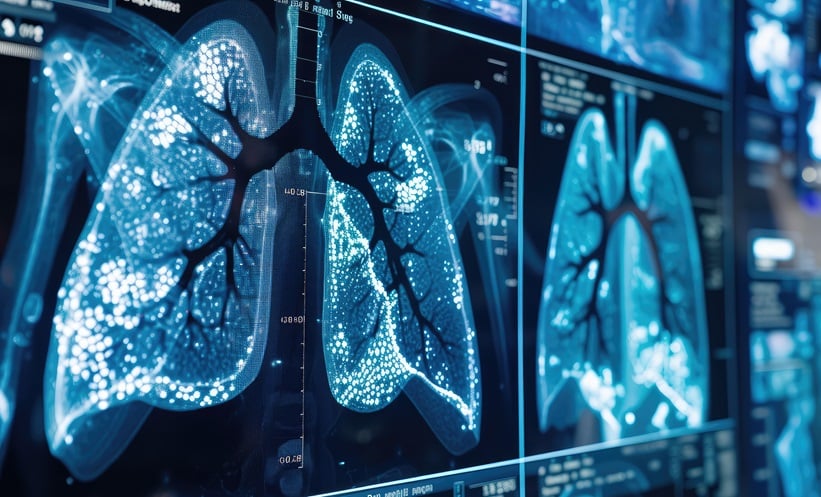A NOVEL study using advanced MRI techniques has revealed that impaired pulmonary gas exchange in the lungs of long COVID patients may be linked to cognitive difficulties, according to findings set to be presented at the Radiological Society of North America (RSNA) annual meeting in Chicago, Illinois, USA.
The study highlights the potential for gas exchange abnormalities to serve as biomarkers, enabling better identification of long COVID patients who may benefit from targeted treatment or prolonged care. Th study authors described the work as the first to utilise MRI to examine both lung and brain function in long COVID.
In the USA, approximately 17% of adults report long COVID symptoms, including brain fog, fatigue, and shortness of breath. These symptoms can reportedly persist for months, or even years after acute infection.
Pulmonary gas exchange is the process by which oxygen enters the bloodstream and carbon dioxide exits. In this study, researchers employed a novel method using hyperpolarised xenon-129 (Xe-129) gas in MRI to evaluate gas exchange efficiency. Ten women, roughly 52 years old on average, who experienced lingering dyspnoea and fatigue roughly 31 months post-infection, participated in the study.
The research team found a significant association between lower gas exchange ratios and cognitive impairments, particularly in executive function and processing speed. MRI also revealed reduced grey and white matter volumes in patients with impaired pulmonary function.
“There was a range of cognitive difficulties among the patients in the study, from mild to more severe cases marked by slow thinking and frequent lapses in concentration,” the authors reported.
Additionally, researchers observed a link between decreased lung function and increased cerebral blood flow. Staab suggested this might indicate a compensatory mechanism or a shared disease pathway involving vascular damage in both the lungs and brain.
The team emphasised the need for larger studies to confirm the findings. He noted that if validated, the results could inform treatment strategies aimed at improving gas exchange to alleviate cognitive symptoms in long COVID patients.
Reference
Staab K et al. Long COVID brain fog linked to lung function. RSNA Annual Meeting, 1–4 December, 2024.








